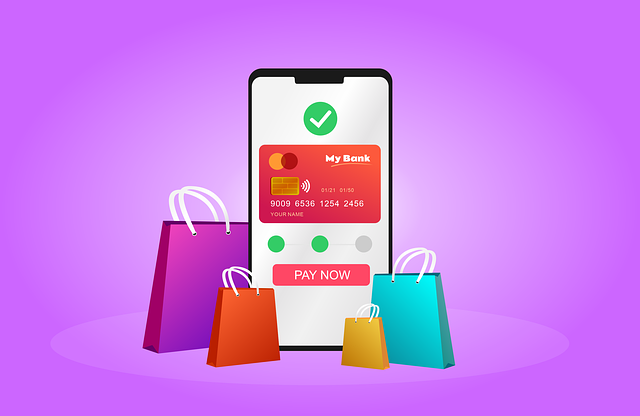
In the competitive landscape of fashion, where digital presence is key and privacy concerns are heightened, fashion professionals require robust online security to conduct discreet online shopping. Utilizing specialized browsers with built-in privacy features like ad blockers and anti-tracking tools is essential to prevent third-party data collection and protect personal information from surveillance. Advanced measures such as VPN integration, no-logs policies, HTTPS connections, sandboxing, and multi-factor authentication further enhance security. For fashion designers and influencers who value their privacy and want to keep their digital footprints confidential, setting up a secure browsing environment with privacy-centric extensions, DNS services like NextDNS or Cloudflare 1.1.1.1 via DNS-over-HTTPS, and regular updates is crucial. IT professionals in the fashion industry must also use anonymizing tools to conceal their IP addresses and secure transactions. By adhering to these practices, including using privacy-centric search engines, secure payment methods, and separate email accounts for shopping versus professional correspondence, fashion designers and influencers can engage in discreet online shopping while safeguarding their personal and professional information. This approach ensures that these professionals maintain an aura of mystery around their brand and personal life, which is vital for success and privacy in the digital age.
In an era where digital footprints are as pervasive as they are persistent, IT professionals and fashion industry insiders alike navigate a complex landscape of online privacy and security. With discreet online shopping for fashion designers and influencers becoming increasingly vital, the need for a robust anonymizing browser is paramount. This article delves into the critical aspects of maintaining online anonymity, from understanding privacy’s importance to implementing best practices. We explore key features essential for secure browsing, provide a step-by-step setup guide for your anonymous browser environment, and offer guidance on sustaining online discretion in fashion retail spaces.
- Understanding the Necessity of Privacy in the Digital Age for Fashion Professionals
- Key Features to Look for in a Browser for Anonymous and Secure Online Shopping
- Step-by-Step Guide to Setting Up Your Anonymized Browser Environment
- Best Practices for Maintaining Online Anonymity While Engaging in Discreet Online Shopping
Understanding the Necessity of Privacy in the Digital Age for Fashion Professionals

In the realm of fashion, where trends evolve at lightning speed and digital presence is a cornerstone for success, privacy concerns are increasingly salient for designers and influencers alike. The digital age has ushered in an era where personal information is currency, often traded for online access. For fashion professionals who rely on discretionary online shopping for sourcing materials or scouting emerging trends, maintaining confidentiality is not just a preference but a professional necessity. Anonymizing browsers offer a critical layer of security, allowing these individuals to navigate the web without exposing their identities or revealing their purchasing patterns, which could otherwise lead to copycat designs or targeted advertising that compromises competitive advantage. The use of such tools ensures that these professionals can perform market research and source inspiration without the risk of their activities being tracked or their ideas being pilfered.
The necessity for privacy extends beyond the protection of proprietary information; it also encompasses the personal sphere. Fashion designers and influencers often interact with a variety of online platforms, from social media to e-commerce sites, where their personal data is at risk. Anonymizing browsers provide a shield against the surveillance that has become pervasive in the digital space. By masking IP addresses and encrypting online activities, these tools enable professionals to engage in discreet online shopping without fear of exposure. This not only safeguards their privacy but also allows them to maintain the allure of mystery that is often associated with high-profile designers and influencers, fostering an aura of exclusivity that can be leveraged in branding and marketing strategies. In essence, anonymizing browsers are indispensable for fashion professionals navigating the delicate balance between personal privacy and professional exposure in the digital age.
Key Features to Look for in a Browser for Anonymous and Secure Online Shopping

When IT professionals or fashion designers and influencers engage in discreet online shopping, maintaining anonymity and ensuring secure transactions is paramount. A browser designed for anonymous and secure activities should prioritize robust privacy features that can safeguard users’ digital footprints. Firstly, look for a browser that offers built-in ad blockers and anti-tracking capabilities to prevent third parties from collecting data on browsing habits. This feature is particularly useful for those in the fashion industry who need to explore trends without their activities being monitored or influencers who wish to maintain a degree of personal privacy.
In addition to ad blocking, the browser should support VPN integration or have a proprietary VPN service to mask IP addresses and encrypt data transmission. This ensures that users’ real locations remain hidden while shopping online, which is crucial for maintaining a discreet profile in competitive markets like fashion design and influencing. Furthermore, a no-logs policy from the browser provider can provide additional assurance that user activities are not being recorded or shared with other entities. Additionally, features such as secure HTTPS connections, sandboxing of browsing sessions, and multi-factor authentication options further enhance the security and anonymity of the browsing experience for IT professionals and fashion enthusiasts alike. These combined functionalities make a strong case for the browser being an indispensable tool for anyone looking to shop online discreetly while maintaining high levels of security.
Step-by-Step Guide to Setting Up Your Anonymized Browser Environment

To safeguard your digital footprint while engaging in discreet online shopping for fashion designers and influencers, setting up an anonymized browser environment is a prudent step. The first phase involves selecting a reputable anonymizing browser such as Tor or a privacy-focused alternative like Brave or Firefox with privacy add-ons. Ensure that this browser operates in a sandboxed environment to prevent any potential leaks of personal data through temporary files and registry entries.
Once you have installed your chosen anonymizing browser, proceed to configure it for optimal privacy. Begin by adjusting the browser’s privacy settings to block trackers and cookies by default. Configure your DNS settings to use privacy-centric services like NextDNS or Cloudflare 1.1.1.1 for DNS-over-HTTPS, which can help prevent your internet service provider (ISP) from monitoring your browsing habits. For a seamless shopping experience while maintaining anonymity, consider setting up bookmarks within the browser that lead to trusted marketplaces and retailers that cater to fashion designers and influencers. This setup ensures that your frequent shops are easily accessible without exposing your true preferences or search history. Lastly, regularly update your anonymizing browser and its extensions to protect against vulnerabilities and ensure a discreet and secure online shopping environment. By following these steps meticulously, you can create a robust, anonymous browsing setup tailored for fashion designers and influencers who prioritize privacy in their discreet online shopping endeavors.
Best Practices for Maintaining Online Anonymity While Engaging in Discreet Online Shopping

For IT professionals who are also fashion designers and influencers, maintaining online anonymity while engaging in discreet online shopping is crucial to protect both their personal privacy and professional reputation. Utilizing an anonymizing browser like Tor or a reputable VPN service that offers robust encryption is the first step in safeguarding your digital footprint. These tools mask your IP address, preventing trackers from linking your online activities to your actual identity or location. Additionally, employing privacy-centric search engines and payment methods that do not store personal data can further enhance your anonymity.
When shopping for the latest trends or sourcing materials for your designs, it’s imperative to practice secure browsing habits. Clear your browser history regularly, disable cookies that track your behavior, and use privacy-focused browsers like Brave or Firefox with enhanced tracking protection. It’s also wise to create separate email addresses for online shopping and fashion industry communications to avoid any crossover between your personal purchasing and professional engagements. By implementing these best practices, IT professionals in the fashion industry can navigate the digital landscape with the discretion they require, ensuring that their online activities remain private and secure.
In an era where digital footprints are as ubiquitous as they are invasive, IT professionals require robust tools to safeguard their online activities, particularly when indulging in discreet online shopping for fashion designers and influencers. This article has delved into the critical aspects of privacy, highlighting the importance of an anonymizing browser as a shield against unwanted surveillance. We’ve explored the necessity of privacy in the digital age, identified key features indispensable for secure online transactions, and provided a comprehensive guide to setting up your anonymous browsing environment. By adhering to best practices for maintaining online anonymity, professionals can navigate the virtual marketplace with confidence, ensuring that their personal and professional lives remain their own. In conclusion, an anonymizing browser is not just a tool but a cornerstone of privacy in our interconnected world, especially for those in the fashion industry who prioritize discretion while shopping online.







